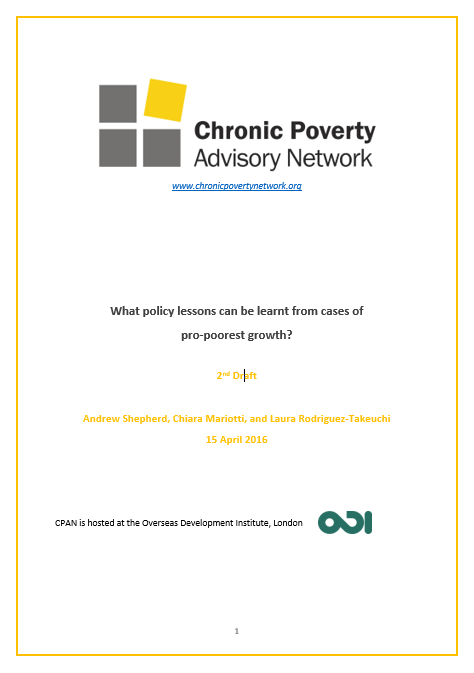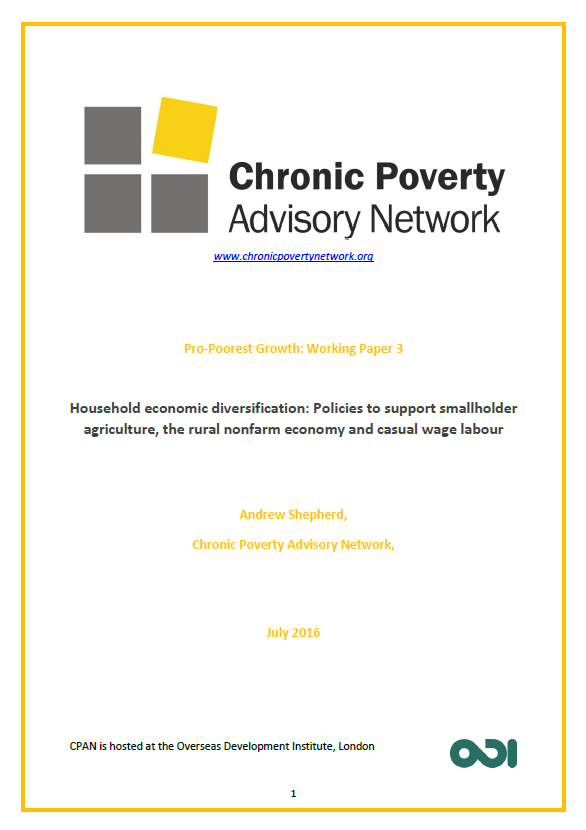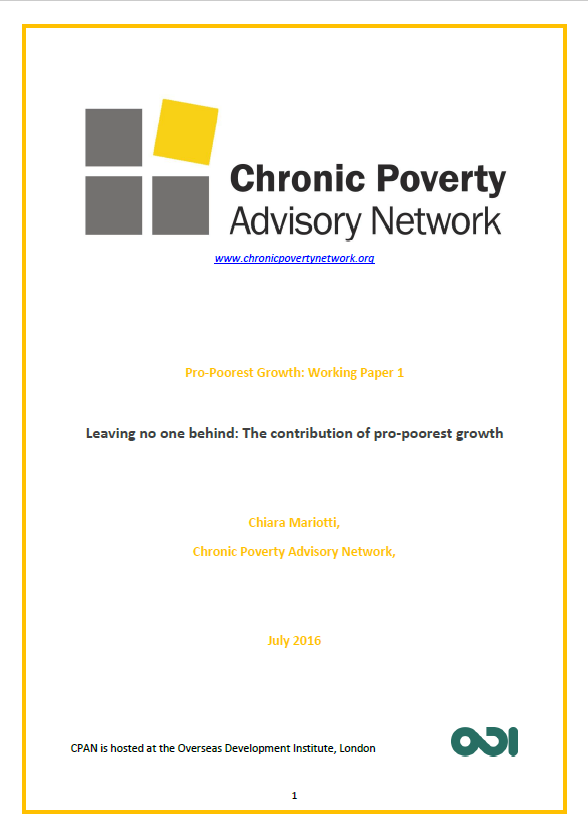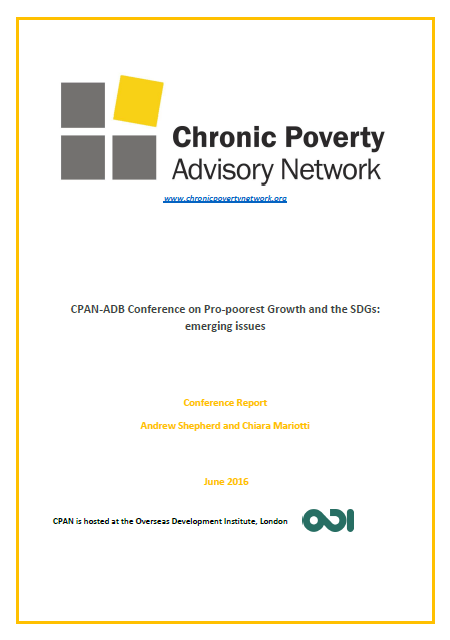Pro-poorest growth, defined as a relatively greater proportion of income gain from growth by the poorest compared to the average, may be necessary to achieve the first Sustainable Development Goal target of eradicating extreme poverty: this paper argues that it is likely to be, and that some countries have had at least episodes of pro-poorest growth.
This paper is designed to answer the following questions:
Is pro-poorest growth necessary to achieve the Sustainable Development Goal target of eradication extreme poverty?
Is there evidence that some forms of growth benefit the poorest while others do not (or do but less so)?
Are the findings uniform across episodes of growth?
Is it possible to develop policy advice on how to achieve pro-poorest growth for other countries, based on the examination of episodes of growth carried out here?
This paper explores a small number of episodes of pro-poorest growth and compares them to other episodes which have not been pro-poorest, or have been but only in absolute terms. While a larger sample of such episodes would be necessary to come to any robust conclusions, a comparative analysis of growth episodes and policies in six rapidly growing countries since 2000 allows some tentative conclusions to be drawn about the policies which can promote pro-poorest growth. Interestingly, these are somewhat different from, or additional to, policies identified as promoting pro-poor growth during the early-mid 2000s. In addition to the policies identified by the Chronic Poverty Advisory Network’s work to date on various discrete aspects of growth, the paper identifies two additional policy areas of importance not present in the CPAN work.
The paper concludes with five key areas of policy, different combinations of which may promote pro-poorest growth in different country situations. Throughout there is reference to the evolving political settlements which permit such policies.
The recommendation that pro-poorest economic growth is necessary to improve all poverty dynamics and to eradicate extreme poverty was a key finding of the 2014-5 Chronic Poverty Report: the Road to Zero Extreme Poverty (Shepherd et al., 2014) and more generally the outcome of the Chronic Poverty Advisory Network (CPAN)’s work on policies for poverty eradication published in numerous policy guides.
Three companion Policy Briefs on (i) Why pro-poorest growth? (ii) Policies to support pro-poorest economic growth; and (iii) Managing the external determinants of pro-poorest growth will be published in the near future. A further policy guide is also under development, on pro-poorest macro-economic policies, elaborating one of the topics in this report, and filling an important gap in CPAN’s portfolio of policy guides on pro-poorest growth






